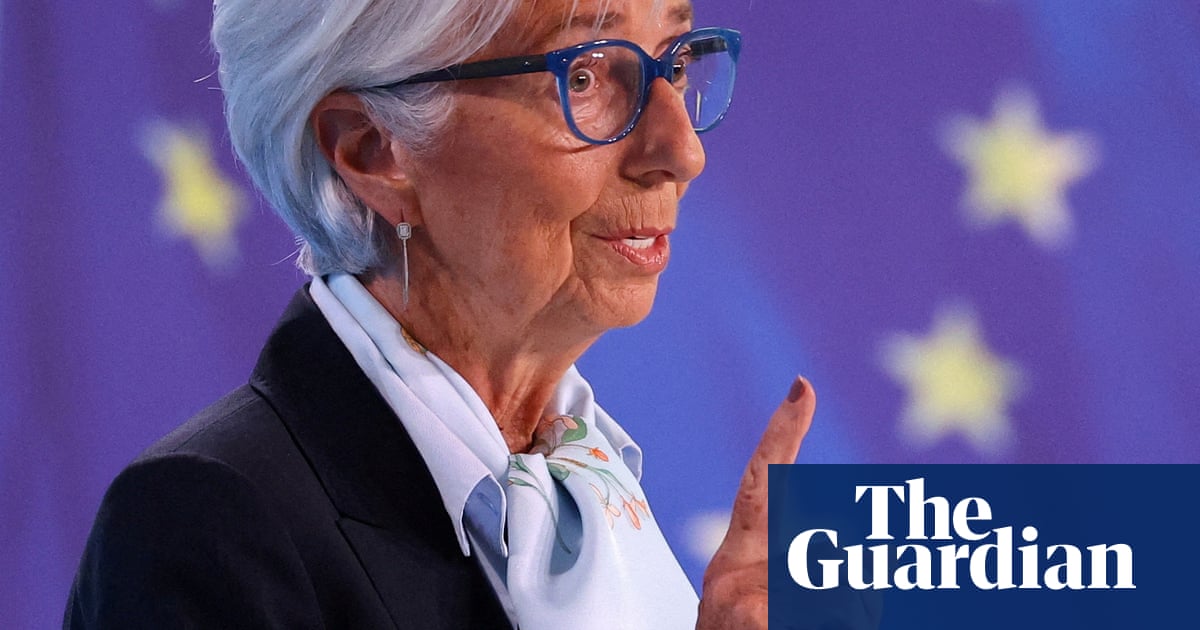The European Central Bank has eased the pressure on borrowers across the eurozone after cutting its main interest rate for the first time in almost five years.
Citing a sustained fall in inflation, the ECB said its deposit rate would be cut to 3.75% from a record high of 4%, putting it ahead of the US Federal Reserve and the Bank of England, which have yet to cut interest rates.
Financial markets eagerly anticipated the first eurozone cut since September 2019, which will also affect the ECB’s main refinancing operations rate, which fell from 4.5% to 4.25%.
City analysts had forecast the cut in borrowing costs at the ECB’s June meeting after signals that the central bank was ready to offer more support to eurozone economies after a period of economic stagnation following the Russian invasion of Ukraine.
In a statement, the ECB said: “Keeping interest rates high for nine months has helped push down inflation. It is now appropriate to moderate the degree of monetary policy restriction.”
Dean Turner, the chief eurozone economist at UBS Global Wealth Management, said the outlook for inflation, as indicated by the ECB’s latest projections, point to further interest rate reductions later this year.
Turner said: “Of course, the timing of the next move from the ECB is uncertain, as this will be dependent upon incoming data. But with the disinflationary process firmly under way, the ECB, along with other central banks, should feel confident enough to ease policy, most likely at a pace of one cut per quarter.”
However, the ECB expects inflation to be marginally higher this year and in 2025 than it was forecasting in March. It said inflation would average 2.5% in 2024 and 2.2% in 2025, up from its previous forecast of 2.3% and 2%, respectively.
Mark Wall, the chief European economist at Deutsche Bank, said the higher than previously forecast inflation numbers would make ECB policymakers more circumspect about futures cuts.
after newsletter promotion
“The statement arguably gave less guidance than might have been expected on what comes next. In that sense, the immediate tone is a ‘hawkish cut’. This is not a central bank in a rush to ease policy,” he said.
Economic growth is expected to improve after better than expected performances in Germany, Italy and Spain. The average growth rate for the eurozone would be 0.9% in 2024, 1.4% in 2025 and 1.6% in 2026, the ECB said.



